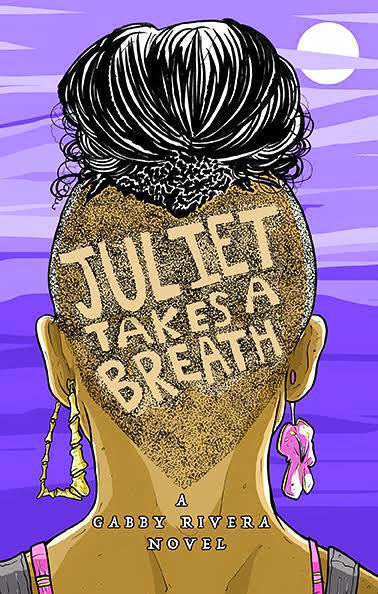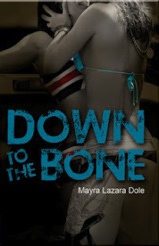 I don’t usually buy new releases. I acquire so many books that I tend to stick to used books and the library for new acquisitions. But when the reviews for Juliet Takes a Breath began to pour in, I couldn’t resist! I bought it brand new and moved it to the corner of my dresser, ready to be the next book I picked up. And then it sat there for about six months.
I don’t usually buy new releases. I acquire so many books that I tend to stick to used books and the library for new acquisitions. But when the reviews for Juliet Takes a Breath began to pour in, I couldn’t resist! I bought it brand new and moved it to the corner of my dresser, ready to be the next book I picked up. And then it sat there for about six months.
In that time, I heard more and more of the book blogs and vlogs I follow mention Juliet, almost always positively. But somewhere along the line the hype began to have the opposite effect. What if I was one of the few that didn’t like it? And then how would I even talk about it? I wanted to like it so much that I was afraid to actually read it in case it disappointed me. It wasn’t until booktube started the #diverseathon that I decided to finally take the leap and pick it. (“Finally!” My partner said. “I feel like I’ve been hearing about that book every day for our entire relationship!”)
As usual, my nervousness was completely unfounded. I can see why so many people fell in love with this book, and I can only agree. It may not be for everyone–its focus on feminist politics and how they intersect with race and other factors will feel unfamiliar to some readers–but I thought it did a fantastic job with that focus.
This is a coming of age story about Juliet, who’s just had her eyes opened to feminist ideals by a book titled Raging Flower: Empowering your Pussy by Empowering your Mind. She’s so blown away by this book that she writes a letter to the author and lands an internship with her. She hops on a plane and arrives in the alien world of Portland, Oregon: a very different place from the Bronx.
There are lots of things going on in this book, but what stuck with me is its recognition that people are complicated and flawed. You can have some things figured out and get others completely, devastatingly wrong. And it’s up to us to decide which people are worth sticking with despite their fuck-ups and which people are toxic for us despite the things they get right. I think that’s such an important and affirming thing to see in a book about social justice.
This also really captures the feeling of diving into feminism and social justice and just getting hit with waves of information that are counter to what you’ve been taught to believe, and the overwhelming process of trying to sift through all of these ideas and find what makes sense to you, what you’re not able to wrap your head around yet, and what’s actually hate wrapped up in the right vocabulary. There’s a lot of theory and discussion in this book, and that makes sense for what it’s addressing.
I loved this book, and I can’t wait for Gabby Rivera’s next one.




 reading. I’m not entirely sure whether that was a positive or negative for me. Not only do a lot of things happen in the book (which I like), but they all happen very quickly. There’s not really any room to absorb what’s happening. Of course, if she had spaced out the action, it would be a very, very long book.
reading. I’m not entirely sure whether that was a positive or negative for me. Not only do a lot of things happen in the book (which I like), but they all happen very quickly. There’s not really any room to absorb what’s happening. Of course, if she had spaced out the action, it would be a very, very long book. Danika: Ooh, I’d like to re-read it with that in mind. Fascinating.
Danika: Ooh, I’d like to re-read it with that in mind. Fascinating.